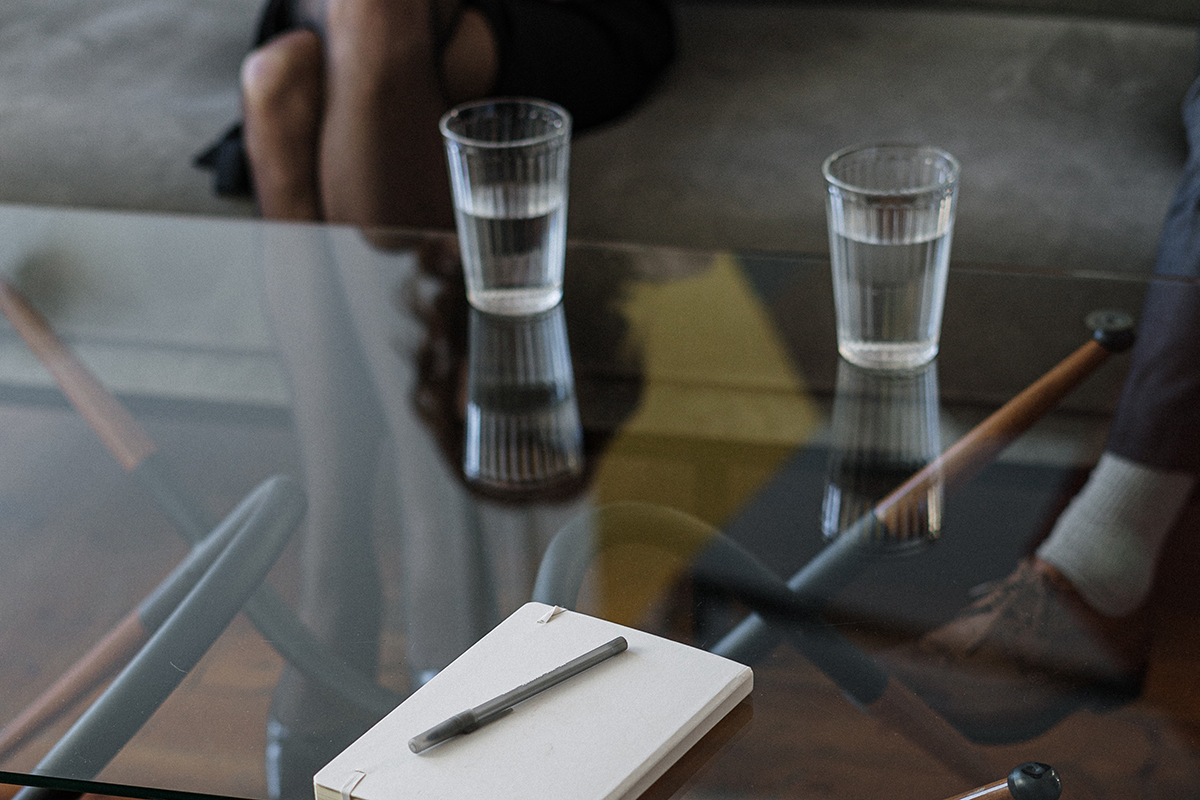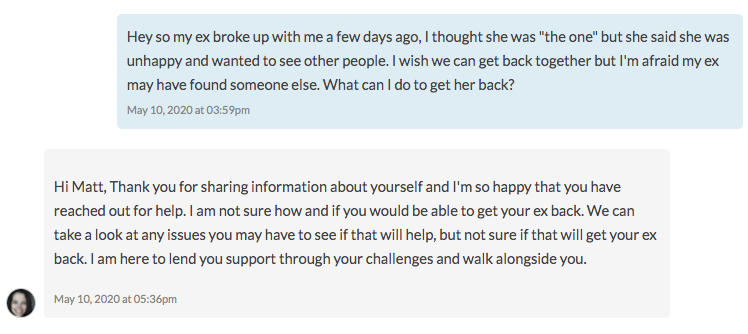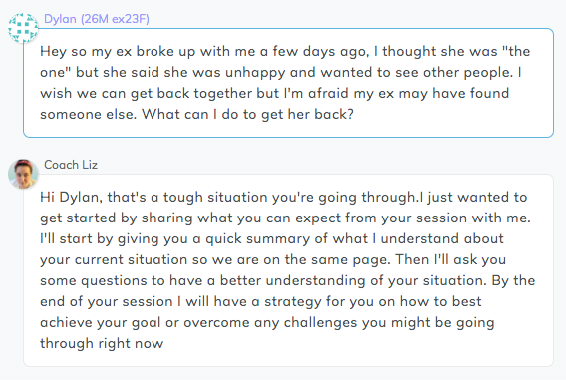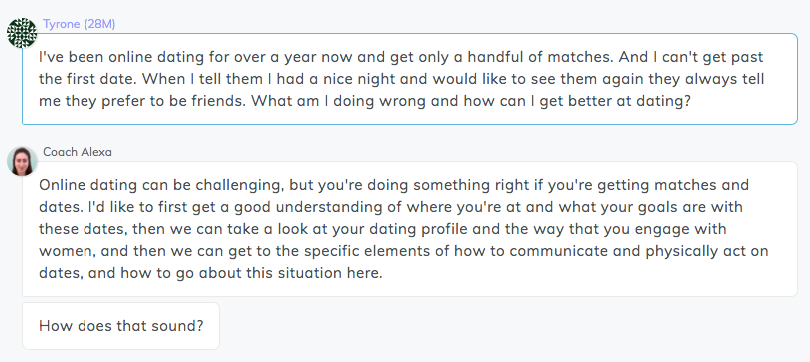Couples Coaching - Working Together To Build A Successful Relationship
Creating and maintaining fulfilling relationships takes hard work and commitment. And it doesn't always come naturally to us.
If you’ve ever been in a relationship, you’ve experienced relationship problems. And you’re probably familiar with what happens when those problems don’t get resolved. As time goes on, unresolved problems may lead to grudges, insults, resentment, jealousy, insecurity, cheating, and eventually breakup or divorce.
If you’re struggling with your relationship or trying to salvage a broken one, you may decide to turn to professionals for guidance. That’s where a Couples Coach comes in.
I know what you’re thinking:
Don’t you mean a couples therapist?
Well, not necessarily. Maybe couple’s therapy is indeed what will work best for you, but there’s a good chance it may not apply to you. Maybe your partner/ex would not be open to "therapy" even if it was sufficiently applicable to you.
What about a therapist just for me, not couples therapy?
Yes, therapy in general is going to apply to a lot more situations than couples therapy. But depending on your goals, couples coaching may still be a better fit for you than therapy.
To be clear, couples coaching isn’t a substitute for therapy - a couple's coach does not help treat mental ailments. Therapy focuses on mental health, whereas couples coaching focuses on your interpersonal and relationship goals.
HOW DOES COUPLES COACHING WORK?

During couples coaching, you and your partner will talk with a relationship/couples coach to go over your relationship. They will help with amplifying your relationship's strengths and minimizing the negatives. Depending on what you need, the process can take some time. It's crucial to be patient, committed, and work together.
Starting at square A
The first few sessions will be focused on getting to know both of you and your relationship - your backgrounds, how you met, how long you have been together, how things have progressed, what issues you want to work on, etc. While you may feel a bit intimidated at first, it's important to be patient and speak your mind. Honest communication is the best way to progress and pretty soon the sessions can start feeling casual.
Fostering open communication
Coaches encourage their clients to openly discuss things that are on their minds during these sessions. Reviewing previous tasks and topics discussed in the past together are great segues into meaningful conversation. A lot of couples are more open to sharing things with each other when they have a third party in the room. And coaches do their best to focus these conversations - to foster relationship growth.
Setting tasks for future sessions
Setting goals and keeping track of them is an important part of going through couples coaching. Towards this, couples are often given tasks or assignments to work on between sessions. These can range from journal exercises to combined breathing exercises. Your coach will often discuss what you're learning from these tasks in order to gauge your progress and what to work on next.
Common Exercises
There are a few common exercises that coaches employ to foster open communication, cooperation, empathy, conflict resolution, etc. Couples are also encouraged to collaborate on lists of new, fun activities they can try together. The goal isn't just to bring some novelty into the relationship, but also to enjoy quality time together. Couples may even work on individual lists where they write down things they appreciate about their partner, or positive messages, etc.
How To Make The Most Of Couples Coaching

Just because you sign up for couples coaching doesn't automatically mean all your relationship problems will disappear immediately. You must do your part to actually get the most out of it.
Make a conscious effort
One of the most common reasons for couples wanting o break up is that they think it's too far beyond fixing or that it will take too much work. But it's important to remember that this work will nurture you, regardless of what happens with the relationship. Even if things don't work out after you try your best, you will have learned crucial information that will guide you in your future relationships. If nothing, it'll help you to avoid similar mistakes.
Be patient
A successful relationship requires a strong foundation, which takes time to build. If it could be done in a day, no one would have any relationship issues ever. Couples coaching will require a lot of emotional labor on your part - you'll have to open up and be vulnerable, be honest about your needs and your dislikes, but also be willing to hear criticism of yourself. It can hurt and be very uncomfortable. Saving a relationship can take some time and trying to hurry it can often lead to frustration that just feeds into the negativity.
Listen to your coach
Your coach will tell you what to do, but ultimately it's up to you to actually follow through. Most couples know that arguments can be futile, hurtful, and often just make things worse. But it doesn't stop them from having arguments. A coach will work with you but you have to work with them or it's not going to go anywhere.
Building healthy patterns
Building healthy patterns will build the solid foundation you need for your relationship to succeed. Your coach will help you identify negative patterns that you and your partner engage in, and then help you change these patterns. Anything that is directly impacting your relationship can be addressed. They will help you to replace these negative patterns with healthy, positive patterns that will help you reach your relationship goals.
You don't have to be unhappy to get coaching
You don't need to wait until things are bad. It can certainly be scary to ask your partner to go coaching with you when things are just going fine. In fact, it might even make them worry that things are going bad. In those situations, it might be better to get individual coaching first and your coach can recommend the best way for you to approach couples coaching with your partner.
Therapy vs Relationship Coaching

Therapists focus on past traumas and issues to change self-destructive habits, repair and improve relationships and work through painful feelings. In this sense, therapy focuses on the past, introspection, and analysis, with the hope of resolving past issues and creating a happier, more stable future. Therapy is a long term process that involves regular sessions with a fixed time limit.
Couples coaches focus on advancing the clients' potential and helping them achieve their goals. They focus on the present and the future, helping clients bridge the gap between their partners and them, as well as where they are and where they want to be. Couples coaches help clients identify obstacles and problematic behaviors in order to create action plans to help them achieve the results they want. They set clients up with a process that may be long or short-term and can involve a combination of on-demand and regular sessions at varying lengths.
Let’s explore what you can expect by approaching a therapist and relationship coach in the following scenarios:
Help to get back with an ex.
Help to fix an unfulfilling dating life.
You want help getting back together with your ex:
#
My ex broke up with me a few days ago, I thought she was "the one" but she told me she was unhappy and wanted to see other people. I wish I can get back together with her, but I'm afraid they might have found someone else already. I want to know what I can do to get them back.

Meeting your therapist
You can expect to:
Identify and understand your emotions surrounding the breakup.
Get help facilitating your exploration of how you evaluate/feel about your - situation and you got into the relationship.
Learn healthy coping exercises to help regulate and process your emotions.
Discover and understand yourself better to empower you to make your own choices.
Examine past events in life and work through the emotions they trigger and the influences they have in your present.
What you shouldn’t expect:
You won’t get direct, actionable advice or strategy to help you achieve your goals.
You won’t get recommendations on whether you should move on or reconnect.
You won’t get help figuring out what your ex may be feeling towards you.
Here’s what a real licensed LMFT responded to the inquiry:

Meeting your relationship coach
You can expect to:
Identify what you hope to gain from coaching.
Discuss your past relationship and the situation you’re in now in detail.
Provide email or text transcripts you’ve had with your ex to help your coach understand your situation in greater depth.
Get an assessment of the core issues and turning points that led to the breakup.
Gain clarity on whether to move on or to attempt to reconnect after weighing the risks involved.
Receive a short and long-term strategy on how to reconnect with your ex and rebuild the relationship stronger and healthier.
Uncover coping strategies, limiting beliefs, and dysfunctional behavioral patterns that prevent you from moving forward.
Collaborate with your coach on exactly what to say or text your ex to help maximize your chances of achieving your goal.
Receive ongoing strategic and emotional support as your situation progresses. Learn what changes you can make to make healthier relationship decisions.
What not to expect:
You won’t get advice on entering, leaving, or maintaining an abusive relationship.
You won’t be coached if you’re having suicidal thoughts.
You won’t be diagnosed or treated for personality disorders, mental illnesses, or substance abuse.
You won’t get actionable advice on day-to-day challenges and struggles.
Here’s a real certified relationship coach’s response:

Now a scenario where you’re dealing with an unfulfilling dating life:
#
I've been online dating for over a year now and get only a handful of matches. And I can't get past the first date. When I tell them I had a nice night and would like to see them again they always tell me they prefer to be friends. What am I doing wrong and how can I get better at dating?

Meeting your therapist
You can expect to:
Work through emotions that hold you back from realizing what you hope to achieve from dating.
Gain clarity about yourself and what you want from your dates.
What you shouldn’t expect:
You won’t get advice on how to improve your dating profiles, conversation skills, attraction, body language, or any other practical skills you could directly apply to dating.
You won’t get any specific recommendations that would help improve your dating situation.
Meeting your relationship coach
You can expect to:
Identify what you’d like to achieve in your dates.
Get a thorough evaluation of your dating profile including bio and pictures.
Get an assessment of what you’re currently doing well and what you can improve on.
Identify what blocks you from being the best version of yourself on dates.
Discover how to play to your strengths in dating.
Learn exactly what you can say or text to help you spark attraction, keep your date interested, and leave a positive impression.
Learn conversational skills, flirting techniques, and attraction building mannerisms.
Learn how to use dating apps to find potential partners who best suit your preferences.
What you shouldn’t expect:
You won’t resolve past trauma or debilitating anxiety that affects your ability to date or hold a conversation.
You won’t learn coping strategies to date when you have a mental health condition or personality disorder that affects your relationships with others.
Here’s a real certified relationship coach’s response:

SO WHICH SHOULD I CHOOSE?
# Therapy and coaching have many overlaps. Some therapists will offer you actionable advice and some relationship coaches will help you overcome emotional challenges. When deciding whether to get relationship help from a therapist or a relationship coach, think about how you’ll answer the first question a therapist or relationship coach will ask you:
Why brought you here? What is your goal?
If you’re seeking help with your emotions, like you want to learn how to control your relationship anxiety or get over your fear of commitment, therapy is a good option. If you’re seeking help with an external goal, like reconnecting with your ex or getting more dates from online dating, a relationship coach might be a better option.
If you're interested in hearing on this topic from a psychologist, check out this article on Psychology Today - The Difference Between Coaching and Therapy Is Greatly Overstated

To summarise, you have a lot to gain from both therapy and coaching and you don’t have to choose one over the other. In fact, 39% of Relationship Hero’s clients have or currently use therapy. Regardless of the service that you decide to use, you’ll become a better, healthier, and more empowered version of yourself for it.
--
Want guaranteed results? Click here to chat with a Relationship Coach who will help you figure out any relationship issues you're having right now.
--